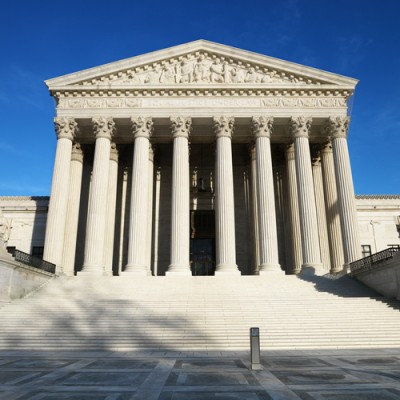SCOTUS rules in favor of Texas school board that censured member

Image from Shutterstock.
The U.S. Supreme Court ruled unanimously Thursday that a school board has the right to censure one of its members.
Justice Neil Gorsuch, writing for the high court, pointed out that elected bodies in this country have censured their members “as early as colonial times.” He said Congress, for example, censures its members for “objectionable speech” toward other members, as well as for comments to the media or remarks that violate confidentiality.
“In fact, no one before the court has cited any evidence suggesting that a purely verbal censure analogous to [the board member’s] has ever been widely considered offensive to the First Amendment,” Gorsuch wrote. “Instead, when it comes to disagreements of this sort, longstanding practice suggests an understanding of the First Amendment that permits ‘free speech on both sides and for every faction on any side.’”
David Wilson was elected to the board of trustees of the Houston Community College System in Texas in 2013. According to the opinion, he disagreed frequently with his colleagues and brought lawsuits challenging the board’s actions. After the board reprimanded him publicly in 2016, Wilson told the media that the board had violated its bylaws, arranged robocalls to share his views with constituents, and hired a private investigator to try to prove that one of his colleagues did not live in the district that she represented.
In 2018, the board adopted a public resolution that censured Wilson. According to the opinion, the resolution said Wilson’s conduct was “not consistent with the best interests of the college” and “not only inappropriate but reprehensible.”
Wilson alleged in court that the censure violated the First Amendment, but a federal district court dismissed his case for lack of standing under Article III. A panel of the 5th U.S. Circuit Court of Appeals at New Orleans reversed the decision in 2020, holding that Wilson had stated a viable First Amendment claim.
In his opinion, Gorsuch said Wilson had to show that the board took an “adverse action” as a result of his speech that “would not have been taken absent the retaliatory motive.” However, he said the only adverse action that Wilson brought to the court was also a form of speech from his colleagues.
“The First Amendment surely promises an elected representative like Mr. Wilson the right to speak freely on questions of government policy, but it cannot be used as a weapon to silence other representatives seeking to do the same,” Gorsuch said. “The censure at issue before us was a form of speech by elected representatives concerning the public conduct of another elected representative. Everyone involved was an equal member of the same deliberative body.”
Gorsuch added that the censure did not “prevent Mr. Wilson from doing his job, it did not deny him any privilege of office, and Mr. Wilson does not allege it was defamatory.”
The New York Times, the Washington Post, NPR and Politico have coverage of Houston Community College System v. Wilson.
Hat tip to SCOTUSblog.



